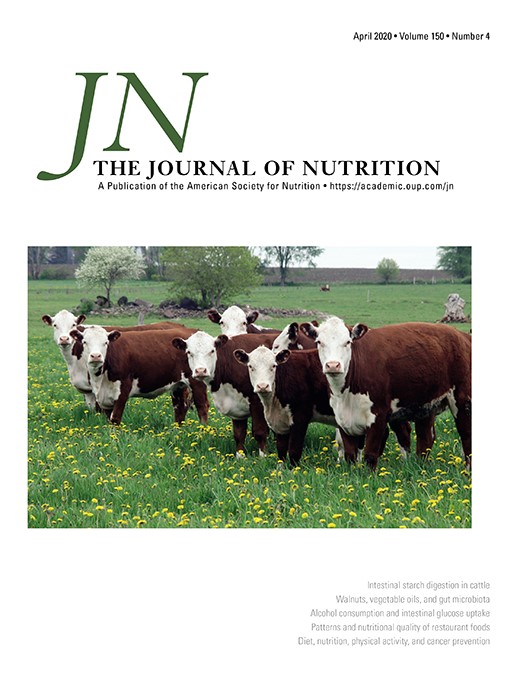North Coast Miller
Level 9 Valued Member
Pretty sure I've come across articles that made the same claim about fatty foods, at least in animal studies.
Studies don't always reflect the real world. Sometimes emotional factors come into play in real life that aren't reflected in studies, especially animal studies.Pretty sure I've come across articles that made the same claim about fatty foods, at least in animal studies.
I'm just addressing the claim re sugary foods. I don't buy it, for sugary or fatty foods, at least not compared to heroin or cocaine - having known people hooked on both.Studies don't always reflect the real world. Sometimes emotional factors come into play in real life that aren't reflected in studies, especially animal studies.
Neither do I, but for people addicted to food it might easily seem that way. To each his personal struggles. I will not be one to lessen the hardship of someone's addictions.I'm just addressing the claim re sugary foods. I don't buy it, for sugary or fatty foods, at least not compared to heroin or cocaine - having known people hooked on both.
Fatty foods may cause cocaine-like addiction - CNN.com
Scientists have finally confirmed what the rest of us have suspected for years: Bacon, cheesecake, and other delicious yet fattening foods may be addictive.www.cnn.com
Fair enough.Neither do I, but for people addicted to food it might easily seem that way. To each his personal struggles. I will not be one to lessen the hardship of someone's addictions.
I can see how going low carb can be a challenge for an ovo-vegetarian.Thank you for so many valuable answers!
The concepts of metabolic flexibility and glucose dependence are new to me. Is achieving the former and "freeing" oneself from the latter possible while not on strictly ketogenic diet? I'm ovo-vegetarian, having eggs for a late breakfast and some legume-wholegrain/starches-vegetable meal(s) later in the day. Would I have to limit carbs further?
Full-blown keto and eating meat is a no-go for me, but I'm willing to learn about different diets' influence on the body.
@Don Fairbanks , yes, I consume yerba every morning. Is it the root of the problem?
You do not need to be on a ketogenic diet. I eat carbs, mostly the good slow types, but weekends often involve the bad fast types. I generally don't eat on Mondays (36 hrs) and a few times per year I'll do multi day fasts up to five days.Thank you for so many valuable answers!
The concepts of metabolic flexibility and glucose dependence are new to me. Is achieving the former and "freeing" oneself from the latter possible while not on strictly ketogenic diet? I'm ovo-vegetarian, having eggs for a late breakfast and some legume-wholegrain/starches-vegetable meal(s) later in the day. Would I have to limit carbs further?
Full-blown keto and eating meat is a no-go for me, but I'm willing to learn about different diets' influence on the body.
@Don Fairbanks , yes, I consume yerba every morning. Is it the root of the problem?
Maybe. Your symptoms mimic caffeine withdrawal.Thank you for so many valuable answers!
The concepts of metabolic flexibility and glucose dependence are new to me. Is achieving the former and "freeing" oneself from the latter possible while not on strictly ketogenic diet? I'm ovo-vegetarian, having eggs for a late breakfast and some legume-wholegrain/starches-vegetable meal(s) later in the day. Would I have to limit carbs further?
Full-blown keto and eating meat is a no-go for me, but I'm willing to learn about different diets' influence on the body.
@Don Fairbanks , yes, I consume yerba every morning. Is it the root of the problem?
Let's revisit this...The concepts of metabolic flexibility and glucose dependence are new to me.
Metabolic Flexibility
As you probably know, Metabolic Flexibility means your body is able to utilize glucose or ketone, depenent on you activity.
Intermittent Fasting programs you body use the right fuel for the right activity.
Is achieving the former and "freeing" oneself from the latter possible while not on strictly ketogenic diet?
Would I have to limit carbs further?

Fatty Foods
Fatty foods may cause cocaine-like addiction - CNN.com
Scientists have finally confirmed what the rest of us have suspected for years: Bacon, cheesecake, and other delicious yet fattening foods may be addictive.www.cnn.com
This article is misleading.
Over consumption of sugar produces an increase in Insulin.
Insulin blocks fat from being burned and stores whatever additional calories are consumed as body fat
Some recent research showed that for a slight majority of people a high carb diet provides more satiety. It seems to be pretty individualistic. I don’t think keto can claim it as a unique benefit resulting from the diet.Ketogenic Diet Satiety
One of the benefits of the Ketogenic Diet is that fat and especially protein provide satiety. That combined with low glycemic index/insulin index carbohydrates minimize hunger.

I've personally found that I was always hungry on a ketogenic diet, even after 3 months on it. I've always gained some fat on a higher carb diet. What seems like the sweet spot for me is low-ish carb but nowhere near keto, with high protein.Some recent research showed that for a slight majority of people a high carb diet provides more satiety. It seems to be pretty individualistic. I don’t think keto can claim it as a unique benefit resulting from the diet.

Very Low and Higher Carbohydrate Diets Promote Differential Appetite Responses in Adults with Type 2 Diabetes: A Randomized Trial - PubMed
In the context of energy restriction, both HC and VLC energy-matched diets promoted comparable effects on fasting perceptions of appetite, but the HC diet resulted in greater "daily overall" fullness and reduced prospective consumption. Further research is required to evaluate the effects of ad...pubmed.ncbi.nlm.nih.gov
Some recent research showed that for a slight majority of people a high carb diet provides more satiety. It seems to be pretty individualistic.

I don’t think keto can claim it as a unique benefit resulting from the diet.
I've personally found that I was always hungry on a ketogenic diet, even after 3 months on it.
I've always gained some fat on a higher carb diet.
What seems like the sweet spot for me is low-ish carb but nowhere near keto, with high protein.
